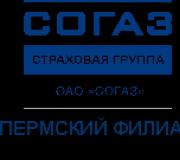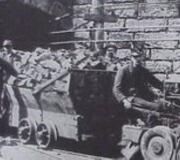(6 photos). Essay-Reflection on the topic: "Feat"
“And when a person loves exploits, he always knows how to do them, and will find where it is possible. In life, you know, there is always a place for exploits.”
M. Gorky "Old Woman Izergil"
Further, Gorky’s heroine continues that those who do not find feats are “simply lazy and cowards.” What is a feat, what action is available to lazy people and cowards?
There are many interpretations of the concept - feat. This is “a valiant, heroic act, which has an important action”, and “a fearless act committed in difficult conditions”, and many others. Personally, I like this interpretation most of all: “Feat is a conscious desire to do something strange, to go beyond the boundaries of our existence.” (A. Pervushin “Thunderstorm at the Zenith”)
In this interpretation of the concept of “feat”, the key word is the word “conscious”. To understand this, you can imagine a situation described many times in fiction: a small and heroic bird attacks a cat who has crept up to its nest, in which tiny chicks that cannot fly are sitting. The bird definitely commits a strange act, goes beyond the boundaries of its existence, dooming itself to certain death. But does she accomplish the feat? The answer is no. Because she does this unconsciously, her self-preservation instinct has triggered.
The instinct of self-preservation is an innate form of behavior of a living creature in a dangerous situation and actions to save itself and preserve its species. I.I. Mechnikov called the instinct of self-preservation the instinct of life.
Humans also have an instinct for self-preservation, and in humans, unlike animals, this instinct develops with age, reinforced by life experience, and a person is able to recognize risks. associated with some action. Pain and fear trigger the mechanism of the self-preservation instinct: pain forces us to look for ways to eliminate it. and fear forces one to seek protection and refuge.
Therefore, a feat is a conscious overcoming of the instinct of self-preservation, the leading instinct for the survival of a living being.
The categorical statement of the old woman Izergil, given as an epigraph to the essay, gives reason to believe that the feat is not only heroic self-sacrifice for the benefit of future generations, but also the daily overcoming of one’s fear and pain.
Another distinctive feature of a feat is that a person performing a feat does not consider himself a hero, because a feat is a selfless action that does not pursue material or other benefits. that when a person goes beyond the limits of his own existence, completely different criteria for assessing behavior begin to operate. F. Nietzsche wrote that if a person has a “why” to live, then he will withstand any “how”.
As an example, we can cite a person whose whole life is a feat.
The feat of Alexei Maresyev began in his early youth. he suffered from joint weakness, and doctors did not allow him to study at flight school. He lost his father early, learned to be a turner, but did not give up his dream of becoming a pilot, studying at a flying club. When he was drafted into the army, he achieved enrollment in a flight school and, in 1941, went to the front as an aviation lieutenant. On April 4, 1942, Maresyev’s plane was shot down and fell in a winter forest. For 18 days he crawled towards his people. In one of the private conversations, Maresyev said that he dreamed of seeing his mother, who would not survive without him. All these long 18 days, Maresyev overcame his instinct of self-preservation, which, if Maresyev had succumbed, would have put him to sleep, saving him from pain and suffering. Until now, from a medical point of view. what Maresyev did is simply impossible. As a result of injuries and frostbite, gangrene of the legs began and when Maresyev was found, it was impossible to save his legs. Then he accomplished another feat - on July 6, 1942, Hero of the Soviet Union A. Maresyev, having prostheses instead of both legs, lifted the plane into the sky. After the war he repeated:
"I'm a man, not a legend! There is nothing extraordinary in what I did."
Feat is a movement of the spirit. which breaks out of a small, comfortable world, through fear, through pain, because... that it is not true that a person who accomplishes a feat is fearless and insensitive to pain, creating a new universe, giving birth to a person capable of conquering himself.
There are words whose emotional and semantic component we sometimes unconsciously downplay. These include the word “feat,” which is very often used by people in the wrong meaning. Someone says he accomplished a feat by getting out of bed at 8 a.m. on Sunday to go for a run. However, is it correct to use this word in this meaning? Let's try to figure out what a feat is and in what cases it is appropriate to talk about it.
Feat - types, advantages and disadvantages
According to the explanatory dictionary of S.I. Ozhegov, heroic and selfless deeds are called feats. In this sense, feats most often became some socially significant actions on the verge of human capabilities. The word “feat,” for example, was actively used in the Soviet Union when talking about a “labor feat” - a patriotic upsurge of the population, in which, in a very short time, it was possible to achieve significant economic growth in a particular enterprise or in an entire country through the efforts of workers or peasants.
The phrase “feat of arms” was also often used, especially during and after the end of World War II. Military feats were performed by those who, at the cost of their lives, were ready to defend their Motherland to the last and sacrifice themselves for the sake of their comrades, loved ones and their country. It was customary to celebrate such selfless acts with various orders and medals.
The victory of the Soviet Union over Nazi Germany to this day is often described in the media as a “feat of the people.” Alas, many received titles and medals posthumously for their heroic achievements, as recognition and gratitude from the state. But even in this case, the families of the heroes could count on benefits and concessions.
Feat today
However, gradually the word began to acquire new meanings and lost its original solemn and heroic emotional connotation. Any action performed in unusual, difficult and dangerous conditions began to be called a feat.
Very often, a feat is confused with any action that requires a little more effort than usual. For example, if you have never climbed a mountain before, climbing a mountain along a steep slope will be considered a feat for you. However, a person who regularly trains and often goes to the mountains will not understand what your feat is in this situation. Therefore, such an act can hardly be called a feat in the full sense of the word.
- (56 words) Feat is a big word. But this is exactly how one can describe the action of Guli Koroleva, described in the book “The Fourth Height” dedicated to her by Elena Ilyina. During the battle, she carried 50 wounded soldiers from the field, and after the death of the commander, she took command upon herself. And even being mortally wounded, she continued to fight until her last breath. One can only admire the courage of this girl.
- (47 words) Despite the fact that the hero of A. Tvardovsky’s poem “Vasily Terkin” does not consider his action a feat, he can be considered a hero. The man, regardless of the great risk, selflessly swims across the river to convey an important report to the command. It could have cost him his life, but he still decided to take this action.
- (48 words) M. Sholokhov’s story “The Fate of Man” raises the topic of not only a military feat, but also a moral one. Driver Andrei Sokolov, while at the front, learns about the death of his entire family. Despite this, he found the strength not to break down and adopt an orphaned boy. The strength of character of the hero cannot but delight.
- (50 words) B. Vasiliev’s story “And the dawns here are quiet...” tells about the military feat of an entire group. During reconnaissance, the female squad and the foreman have to engage in a desperate battle with the enemy. Each of the women dies heroically and painfully. Even realizing the danger, they rushed to the front and sacrificed their lives along with men.
- (52 words) “The Tale of a Real Man” by B. Polevoy is not by chance given such a name. The author tells the story of the pilot Alexei Meresyev. The hero was shot down in a fighter plane over German-occupied territory and tried to find his way back through the forests until he reached his own. Even having lost both legs, the man continues to fight back the enemy. Such a person can truly be called great, and his action a feat.
- (61 words) In the story “Obelisk” by V. Bykov, a controversial attitude towards the hero’s action arises. During the war, teacher Ales Morozov creates an anti-fascist group with his students. Without listening to the teacher, the boys commit the murder of a brutal policeman. After their capture, Ales is offered to surrender voluntarily. The man comes, realizing that the students will not be released. Subsequently, they are all executed. Years later, someone considers this act reckless, and the witness of the events - a feat.
- (44 words) In the epic novel “War and Peace” L.N. Tolstoy shows us that a feat is not always noticeable. Captain Tushin, who practically took the bullets upon himself, was reprimanded for leaving without an order, although the courageous resistance of his battery shocked even the enemy. The feat was noticed only thanks to the intercession of Prince Andrei.
- (52 words) Thomas Keneally's novel Schindler's Ark tells the story of a real person - the German Oskar Schindler. The man saved a huge number of Jews during the Holocaust. He illegally hired them as his workers, hiding them from persecution. After the surrender of Germany, the hero was forced to flee, but entire generations of Jews remained grateful to him for the moral feat he accomplished.
- (53 words) “Alpine Ballad” by V. Bykov is a story about bitter self-sacrifice. Ivan Treshka, who by chance escaped a concentration camp, meets Julia. The sudden feeling that flared up between them is interrupted by the fascists pursuing them. Here the hero accomplishes his feat: having found himself in a dead end, Ivan saves the girl, throwing her from the gorge into a snowdrift, while he himself remains to be torn to pieces, sacrificing his life.
- (59 words) B. Vasiliev’s story “Not on the Lists” tells the story of the defense of the Brest Fortress. Undoubtedly, everyone who repulsed the enemy in that battle accomplished a feat. But the only surviving lieutenant, Pluzhnikov, amazes with his resilience. Having lost his comrades, he continues to fight bravely. But even being captured, he so delighted the Nazis with his courage that they took off their caps in front of him.
Examples from life, cinema and media
- (57 words) In the film “The Boy in the Striped Pajamas,” the son of a concentration camp commandant makes friends with a Jewish boy on the other side of the fence. Eventually, the parents find out and insist on moving. However, the boy manages to climb over the fence to help his friend search for his father. Despite the tragic outcome of events, even such a sincere desire to help can be considered a feat.
- (41 words) Rescuers or firefighters constantly risk their lives to save others. Every shift is a new challenge. This type of work requires incredible courage and fearlessness and takes a lot of nerves. Often they themselves do not consider this a feat, but for the people who receive their help, they are real heroes.
- (42 words) Not all feats are on a huge scale. A boy who is afraid of heights, but takes a small kitten from a tree, also accomplishes a feat. He fights his fear, steps over it, to ultimately save the defenseless animal. He overcomes a big obstacle within himself. It deserves respect.
- (56 words) One day, my friend and I were sunbathing on the beach. Nearby, in the shallow water, a girl was wandering, but suddenly she suddenly disappeared from sight. We got worried and my friend went to check out the place. It turned out that there was a double bottom - she fell and began to sink. The friend, undaunted by the danger, dived after her and saved her life. I consider this a real feat.
- (43 words) The feat can be completely different. My friend constantly helps homeless animals. I can call this a feat, since she sincerely cares about them, takes them home and keeps them warm and comfortable. Despite all the difficulties, she picks up rejected pets, saving their lives.
- (47 words) One day I came across an article about a young man who saved a little girl who fell out of a window. The guy was just passing by, reacted incredibly quickly and managed to catch the child. With this action he accomplished a real feat. Heroes are among us. And they don’t wear flowing raincoats at all, but ordinary jeans and T-shirts.
- (42 words) In the film Harry Potter and the Deathly Hallows II, the main character accomplishes an incredible feat when he decides to sacrifice his life to save the entire wizarding world. He meets the main evil face to face. Despite the entreaties of friends who are ready to fight, Harry remains unshaken.
- (40 words) I have always considered adopting a child a moral feat. I admire how people are able to take on such responsibility and give love and warmth to their stepchild. My uncle and aunt accomplished this feat. I respect them immensely for making such a difficult and generous decision.
- (47 words) People very often become attached to their pets. The hero of the story, which I came across on a news site, was so eager to protect his pet that he rushed at the bear when it attacked his puppy. The man showed superhuman courage, thanks to which his pet remained alive. This can be called a real feat.
- (62 words) In my opinion, Stephen Hawking's first wife accomplished an incredible feat. Jane did not leave the scientist when he began to develop an illness that later led to paralysis. She continued to look after him as long as possible, gave him three children, and literally devoted her entire youth to him. Even though the couple divorced many years later, this woman’s choice still fascinates me.
What is a feat? When you hear such a question, you immediately don’t find what to answer. Indeed, in the modern world the concept of feat is quite “extensible”. Let's try to figure out what actions can be counted as feats.
What is a feat?
A feat is considered a valiant heroic deed that was performed free of charge, based on internal motives, for the benefit of a certain person or group of people. These impulses are so strong that they drown out the feeling of fear, pain, and danger.
Feats include self-sacrifice towards the weaker. Since human life is the most valuable thing, all actions aimed at saving it, despite the severity of the consequences for oneself, can be called a feat.
Feats of Antiquity
In ancient times, heroic deeds were performed by such heroes as Spartacus, Hercules, Odysseus, Perseus and others. These characters were endowed with divine power, and they became heroes not based on actions and deeds, but by birthright (their mother or father was considered a God). Therefore, the feats were not entirely real:
- destruction of monsters (Hydra, Cretan bull-man);
- cleansing the stables of King Augeas;
- defeating the Cyclops;
- mining of the Golden Fleece.


Feat of the people - what does this mean?
A feat of the people is the actions of people aimed at achieving a common goal. A striking example of the heroism of the people is the Great Patriotic War, when:
- the soldiers of their own free will went to the front line, realizing that they would not return back;
- children went on reconnaissance missions and risked their lives to collect information about enemies;
- people risked their lives to shelter partisans and wounded in their homes;
- They gave their last bread to the soldiers, leaving their family hungry.
The common idea of victory over the fascists united different nationalities and pushed people to self-sacrifice for the sake of peace in their land.


What is a modern feat?
Heroes of our time - who are they? Today everyone can accomplish the feat. The title of hero does not require parents of the Gods or military actions. Emergency Situations Ministry workers perform heroic deeds every day, saving ordinary people from fires and other emergencies. Ordinary people, passing by a drowning person, an unfortunate person in an accident, or a burning house, stop and, committing an act of self-sacrifice, without thinking about the consequences, try to help strangers. Modern heroes can be called:
- mothers who, having their own five children, take other people’s children and even disabled children from orphanages, I surround them with selfless love;
- the driver, who, trying to avoid a collision with a school bus, sacrificed his life by turning towards the bump stop;
- a man who took a child out of a previously uncovered hatch who had been sitting there for a day;
- a cancer patient who does not give up and forces others to fight this disease, thereby saving their lives;
- a teenager who carried a child in his arms from a nearby burning house.
There are thousands of such examples of feats and they are performed not for reward, but because of internal impulses that appear under certain circumstances. 

Heroes are not born, heroes are made. Feats are accomplished “automatically,” especially if the life of a weaker person is at risk: a child, a disabled person or a pensioner.
A feat, in my opinion, is an act that a person committed, regardless of all the circumstances. The feat elevates a person to the rank of great ones who remain forever in the history of mankind. People often perform feats in a state of passion. They cannot explain how they jumped over a three-meter fence or saved a child from a fighting dog. All this happens on a subconscious level, when a person forgets what fear is.
Feats are always great deeds, which are often associated with self-sacrifice or forever broken life after the act. For example, like in war, when a soldier saved a comrade from a bullet. In peaceful life, exploits are not always something outstanding and globally important. For each person it is something different:
- Save a hungry kitten in winter
- Make up first
- Or sacrifice your favorite job for the sake of your family
A feat is something for which you just want to say thank you. I am sure that such actions do not go unnoticed in heaven. Such people will be thanked. After all, good always comes back.
Who are the heroes
Those who accomplished the feat are called heroes. These people are altruistic, kind and always happy to help. They are taken to the very top. After all, they saved someone. Human life is priceless. They know it better than others.
For me, a striking example of a feat is the act of Schindler - the man who saved a thousand Jews from imminent death in a concentration camp. This man took people to work in his tableware factory. He collaborated with enemies in order to save people's lives. Although in himself, he was not a very good person. This proves that even the most evil and bad people are capable of noble deeds.
For myself, I am also a hero. I start doing things I don't really like in order to have what I want. For example, daily foreign language classes, additional lessons in various subjects, which I am not enthusiastic about. In the future, I think this will help me achieve something. I think that there will still be situations in my life in which I can show myself as a hero.




